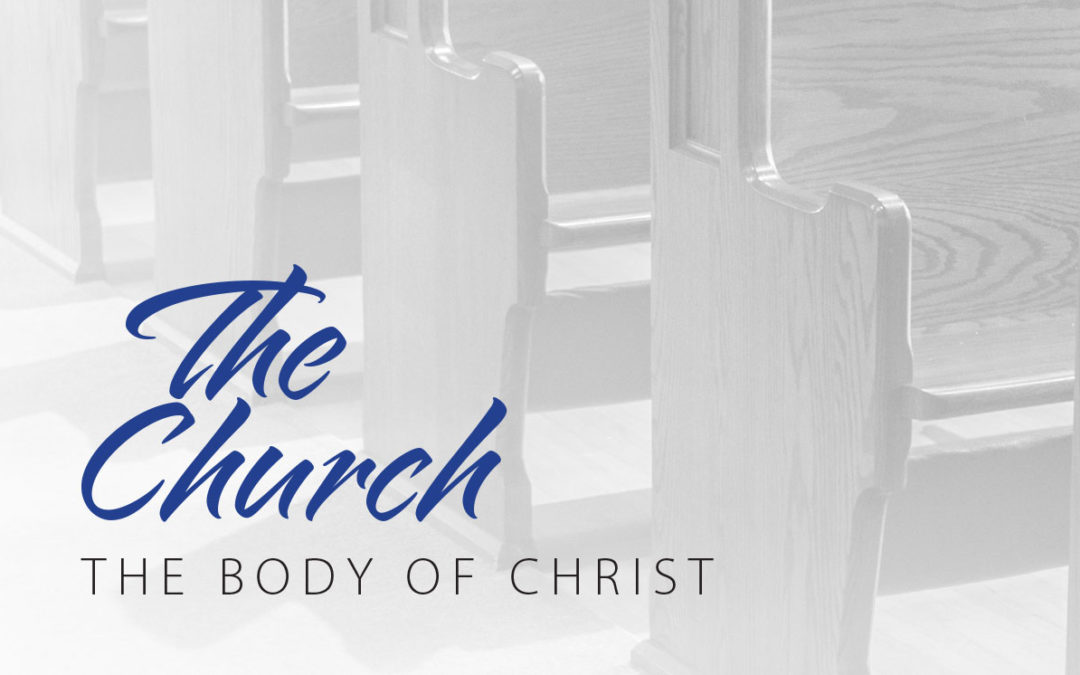The Church: The Body Of Christ
Bob Blankenship
To help Christians understand their responsibility to one another, Paul compares the church to a body. He gives two contrasting ideas to help explain the way in which believers relate to each other. 1) As a body, the church has diversity. “For the body is not one member, but many.” (I Corinthians 12:14) There is one body but it has many parts. 2) As a body, the church also has unity. “But now are they many members, yet but one body.” (I Corinthians 12:20) All of the parts must work together as one body. The combination of these two ideas teach how Christians are to come together to compose the body of Christ.
Because there is diversity and unity in the body of Christ it is foolish to compare ourselves with others. How can any member of our body truly compare itself to another? Even the fingers on our hands are different, each serving a different purpose. A thumb and an index finger each have their unique abilities. Too many in the church are reluctant to teach, testify, sing, pray, or speak for the Lord because “others can do it better.” If the only bird that sang was the one that sang best, the woods would be very quiet. Let us not measure ourselves among ourselves but be the part of the body we were meant to be. As one person stated “the most important note in music is B natural.”
Each member of the body has value and worth. A brick mason had a brother who was famous for playing the violin. When he was compared to his talented brother he said, “Yes, if it wasn’t for me, my brother would not have anywhere to live. He doesn’t know how to lay bricks. All he can do is play the violin.” Your talents are different than those of others and yet you are still important to Christ’s body.
God has put each person in the body as it pleased Him. (I Corinthians 12:18) He puts the body together with different members in order to make it complete. Consider the different disciples: There was Peter the spokesman and Pentecost preacher. His brother Andrew only has a few words credited to him in Scripture but he is always seen bringing people to Jesus. Matthew left his tax table but took his pen and became a writer. God has made each one of us different yet we are each vital to the body of Christ.
The body is to be unified. Every person in the church is different and every person is needed. (I Corinthians 12:21) The eye cannot decide the hand is unnecessary. The feeble members, the less honorable members, and unseemly members are all important. We can get by without a leg or an eye but we must have a liver or a pituitary gland. They are unseen and not often considered but vital for life.
The beauty of the various parts of the body of Christ being unified is that it has the ability to take care of itself as well as care for others. (I Corinthians 12:26) God designed the parts of the body to work together. He wants you to take your place in the body to make it complete. More can be accomplished together than separately. We are not as a daisy with single petals that come together in the middle but never touch each other. Christians are to be as a rose, joined at the stem but then wrap around each other, connecting, and supporting each other. We have a responsibility to support and care for the other members of the body. Each believer has something of value to contribute.
We must understand the importance of being unified, serving one another in the body, and serving others who need Christ. We are Christ’s body in the neighborhood, on the job, and at the store. We have the serious responsibility of ministering to others as Jesus would.
As the body of Christ functions properly, the parts do not get special attention but the honor goes to Jesus, the head of the body. When every part is whole and well, Christ receives the focus and praise. The diversity and unity combine together to give Him the glory. Be yourself and fulfill your part in the body of Christ.
Christ has no hands but our hands to do His work today;
He has no feet but our feet to lead men in the way;
He has no tongue but our tongue to tell men how He died;
He has no help but our help to bring them to His side.
—Annie Johnston Flint


